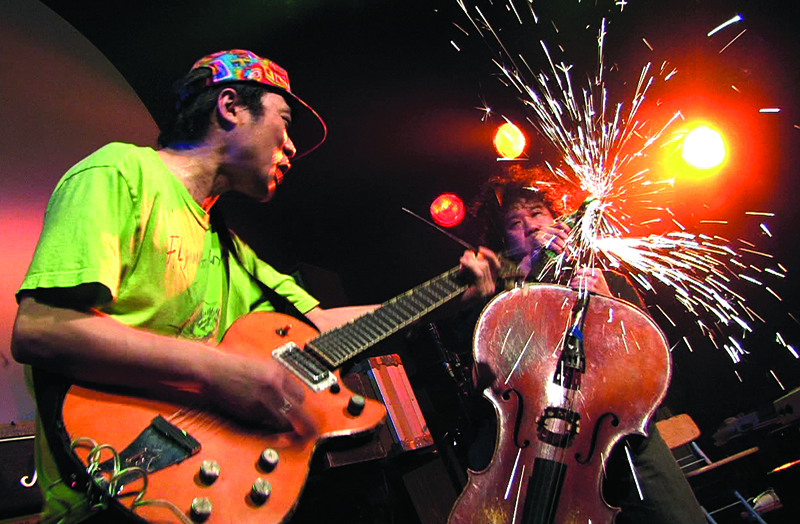In modern Japan, commuters squeeze into impossibly packed trains, and consumer culture fills in the cracks. The confines and conformity of Japanese culture are what drive the avant-garde musicians in Cedric Dupire and Gaspard Kuentz’s 2009 documentary to create their schizo, unclassifiable sounds. Hiromichi Sakamoto drags a beat-up cello behind him like Linus and his blanket, scrapes the instrument on a balcony railing, and takes a grinding tool to the metal endpin at its base. Fuyuki Yamakawa rigs his body to an amp that pumps out his heartbeat. The effect is frenetic and nerve-rattling.The filmmakers turn a keen eye toward some of Tokyo’s overlooked—and growing—musical factions. In response to all the consumer refuse and waste, Tomoko Shimazaki and Ken Takehisa perform a noise “concert” on a trash-strewn beach. This group of rogue sonic artists isn’t interested in fitting in or producing conventional harmonies.”Conformity is defined by a social consensus,” says Yamakawa during one of the film’s roundtable discussions (with the Japanese subtitled into English). “Our actions are dictated by this hypocritical norm, which smothers any desire for change . . . I’m convinced there are many alternate and more appealing possibilities. I also believe it’s my role to seek them.”Cycling through artist chats about the creative process, performance vignettes, and stark urban scenes, We Don’t Care takes its artistic mandate from its subjects—not to fit into a box, at any cost. Even if the soundtrack may have you running for the door, Dupire and Kuentz do a fine job of documenting this improvised-music scene. Which, as the title implies, isn’t about the music—it’s about the hunger for process, the thrill of discovery, and the unknown waiting just beyond the harmonic threshold.film@seattleweekly.com
In modern Japan, commuters squeeze into impossibly packed trains, and consumer culture








